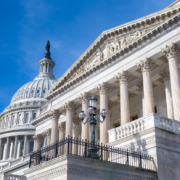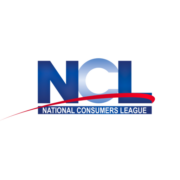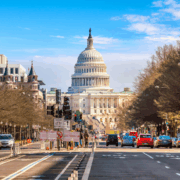Media Contact: Lisa McDonald, Vice President of Communications, 202-207-2829
Washington, DC — A new analysis from the National Consumers League (NCL) finds that federal vehicle safety and fuel economy standards account for only a small share of vehicle prices while delivering thousands of dollars in savings per vehicle and trillions of dollars in societal benefits. The full report is available here: Sticker Shock: Uncovering the Real Drivers of Rising Vehicle Prices.
 “Families don’t have to choose between safety, fuel efficiency, and vehicle affordability, and the data proves it,” said Daniel Greene, Senior Director of Consumer Protection and Product Safety at NCL.“Federal safety and fuel economy standards save households thousands of dollars over the life of their vehicle while having a marginal effect on vehicle prices. Our findings reveal the true culprit of sticker shock: production of more luxurious models, more expensive vehicle mix, and showroom markups.”
“Families don’t have to choose between safety, fuel efficiency, and vehicle affordability, and the data proves it,” said Daniel Greene, Senior Director of Consumer Protection and Product Safety at NCL.“Federal safety and fuel economy standards save households thousands of dollars over the life of their vehicle while having a marginal effect on vehicle prices. Our findings reveal the true culprit of sticker shock: production of more luxurious models, more expensive vehicle mix, and showroom markups.”
“While automakers discontinue their smaller, cheaper, more efficient vehicles, dealers charge higher and higher fees and inflation across the entire economy gets worse – but somehow we’re supposed to buy the industry’s arguments that safety and fuel economy standards are responsible for the high cost of cars,” said Senator Markey (D- Mass). “The National Consumer League’s report shows us definitively that fuel economy and safety standards save lives, clean our air, and make travel more affordable, while carmakers drive up costs on their own.”
“Americans deserve cars that are safe and affordable. The latest report from the National Consumers League shows that safety technology represents just a small fraction of what consumers pay for a car. We don’t need to trade away safety to talk about price. Instead, we should be looking at corporate pricing practices and gouging across the supply chain for why car prices have gone up, while continuing to promote safety standards that protect families and prevent tragedies,” said Jan Schakowsky (IL-09)
Since 2002, average expenditures per new vehicle have increased $23,349.83. Improvements in fuel economy and safety standards account for only a modest share of this increase, as follows:
- Safety standards (2002-2019):$628.98, or 2.7 percent.
- Equipment upgrades: $3,040.20, or 13 percent. Equipment upgrades include fuel economy improvements, safety standards requiring compliance between 2020 and 2025, and improvements in durability, performance, horsepower, comfort, and convenience.
- Trimflation: $5,863.32, or 25.1 percent. Trimflation is the sale of more profitable, high-quality models.
- Vehicle mix: $3,998.54, or 17.1 percent, of the increase. Vehicle mix is the sale of more profitable light trucks than cars.
- Dealer markups and margins: $1,810.78, or 7.8 percent.
- Automaker margins and production costs: $8,008.03, or 34.3 percent.
Vehicle affordability has stayed strong over time. Adjusting for inflation, the average price of new cars has actually fallen since 2002, while the real price of light trucks has risen modestly. Household spending on new and used vehicles has grown more slowly than on essential household costs such as housing, healthcare, education, and groceries, easing pressure on budgets.

“The relatively modest rise in household spending on new and used vehicles is actually easing household budgetary pressures, which are mounting due to skyrocketing healthcare, education, housing, and grocery costs,” Greene said. “Weakening safety and fuel economy standards would actually exacerbate the affordability crisis, leading to more unnecessary deaths, injuries, illnesses, property damage, and gasoline consumption. Families can ill afford the associated loss of wages and increase in healthcare, repair, and fuel costs.”
Today’s vehicles are safer and more fuel-efficient than ever. The real–world fuel economy has risen by more than 60% for cars and nearly 50% for light trucks since 2002, saving owners of 2024 vehicles roughly $9,000–$10,000 in fuel costs over their lifetimes. Federal safety standards from 1968 to 2019 have generated an estimated $12.8 trillion in benefits, including $5,164.51 per household in 2025 alone.
The full report is available .
###
About the National Consumers League (NCL)
The National Consumers League, founded in 1899, is America’s pioneer consumer organization. Our mission is to protect and promote social and economic justice for consumers and workers in the United States and abroad. For more information, visit www.nclnet.org.



 “Families don’t have to choose between safety, fuel efficiency, and vehicle affordability, and the data proves it,” said
“Families don’t have to choose between safety, fuel efficiency, and vehicle affordability, and the data proves it,” said 

























